Bankruptcy
We can eliminate creditor harassment, stop lawsuits, prevent garnishments, and in some cases even recover garnished money. Chapter 7 bankruptcy serves as one of the easiest paths to a fresh financial start. In most circumstances, we can preserve your assets while eliminating unsecured creditor threats, high interest rates and lawsuits.
Chapter 7 Bankruptcy
Chapter 7 is the fastest, easiest, least expensive, and most common form of bankruptcy. The process usually takes about 120 days and provides a fresh start by eliminating many common financial obligations: medical debt, credit card debt, past due utilities, payday loans, back rent, amounts owed on repossessed vehicles, and money judgments.
What Property May I Keep in a Chapter 7 Bankruptcy?
Bankruptcy law provides capped exemptions that protect certain assets such as: personal residence, vehicles, household goods, personal effects, tools of the trade, life insurance and deposit accounts, among other things. Qualified retirement benefits typically may be excluded from the bankruptcy estate in whole or in part. The vast majority of people filing bankruptcy under Chapter 7 are able to keep all their property.
Chapter 13 Bankruptcy
Chapter 13 bankruptcy allows you to consolidate debt into a manageable plan that provides monthly payment to a Chapter 13 bankruptcy trustee over the span of 3 to 5 years. Upon filing a Chapter 13 repayment plan, creditors may no longer collect from you. They must adhere to the terms of your repayment plan.
Some of the relief available in a Chapter 13 bankruptcy includes:
- Keeping your home – Under Chapter 13, you may be able to cure your mortgage arrearage, without interest, over the term of the plan.
- Paying liens – Under Chapter 13, you will only need to pay what the collateral is worth. If your car or equipment loan is underwater, paying only the value of the collateral may be a substantial benefit.
- Protecting co-debtors – Under Chapter 13, co-debtors are often protected from the claims of the creditor while the debtor makes payments over the term of the plan.
- Stopping tax levies – Under Chapter 13, tax levies can be stopped, and taxing authorities can be forced to accept your payment plan.
Chapter 12 Bankruptcy
Family farmers have their own form of debt restructuring. Chapter 12 has special provisions to ensure that farmers can reorganize to keep the family business going. Furthermore, using chapter 12 can limit or even eliminate the tax from getting out of farming.
Chapter 11 Bankruptcy
Chapter 11 bankruptcy is a reorganization plan to provide struggling businesses with financial relief. Upon filing bankruptcy, an automatic stay is imposed. This provides immediate relief from collection activities and allows time to prepare a comprehensive restructuring plan.
What Can Chapter 11 do for your Business?
A reorganization plan might consist of divesting the business of unprofitable or nonproductive assets, changing the payment structure, whether by interest rate or amortization, and reducing overall indebtedness. Other benefits include the following:
- Lower payments
- Lower interest rates
- Stop foreclosure and prevent repossession
- Stop tax levies
- Reject unprofitable leases and contracts
TAKE THE FIRST STEP TOWARD A FRESH START.
Our attorneys are well-versed in all types of bankruptcy chapters and procedures. During this stressful time, let us help you find the right option for debt relief. Call our office at (715) 849-8100 or email our team to schedule your bankruptcy consultation. The first half hour is free.
